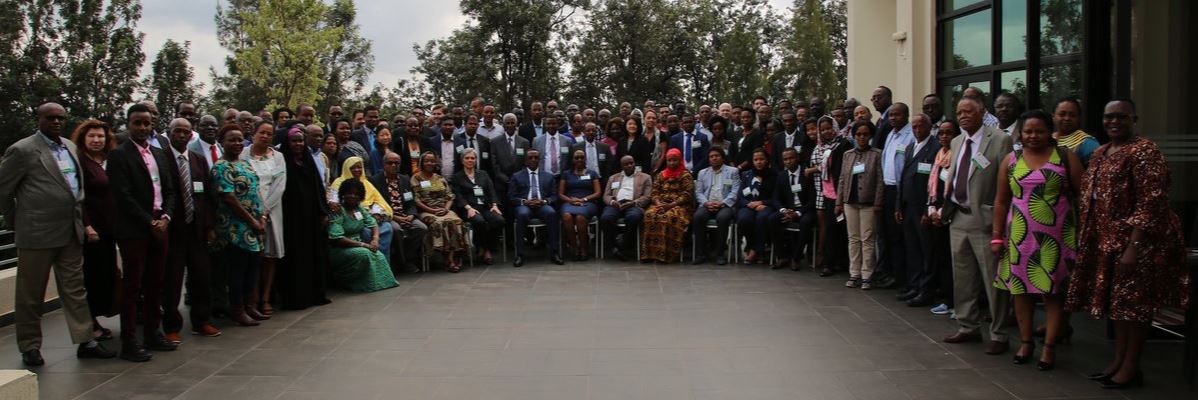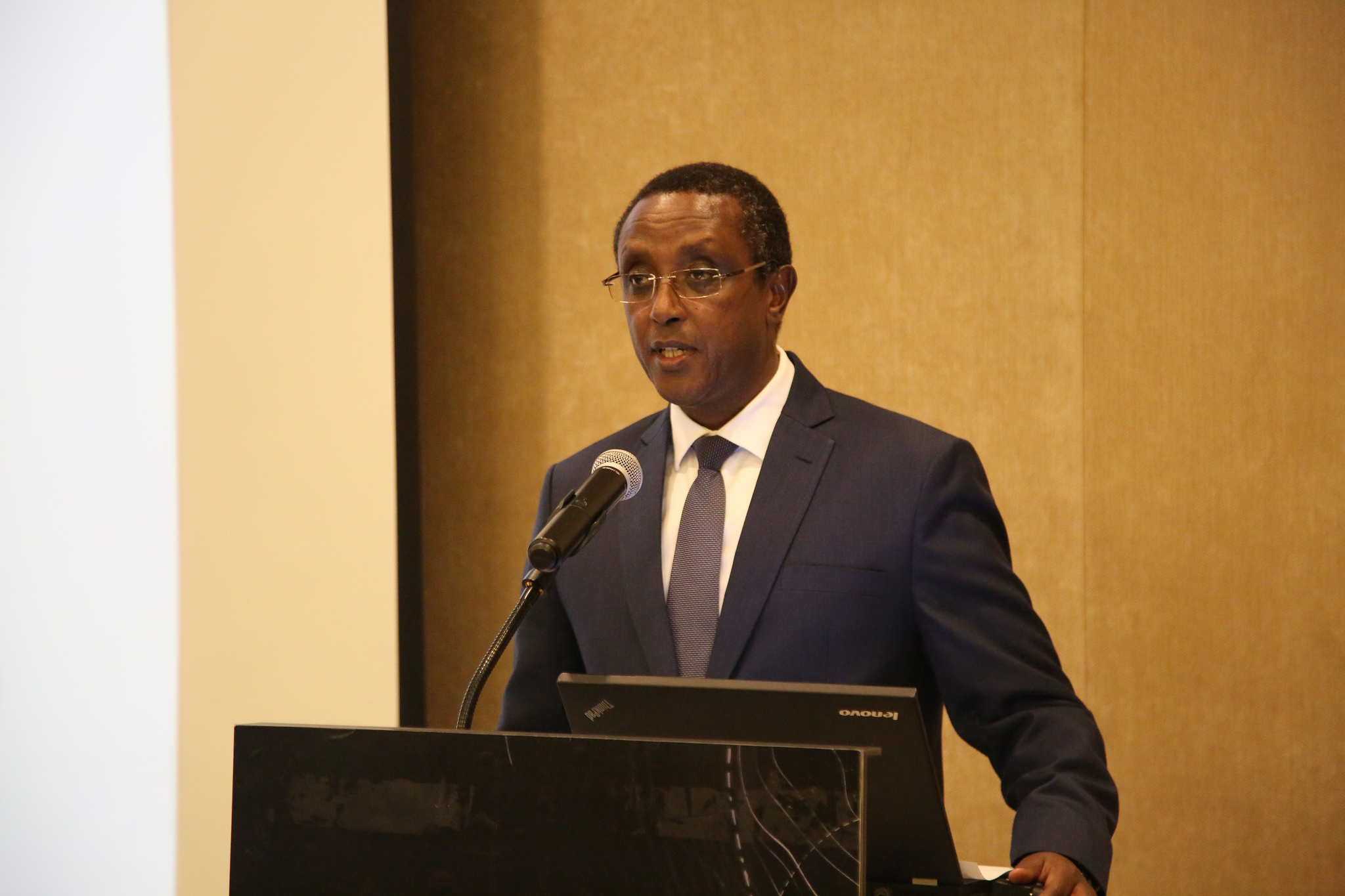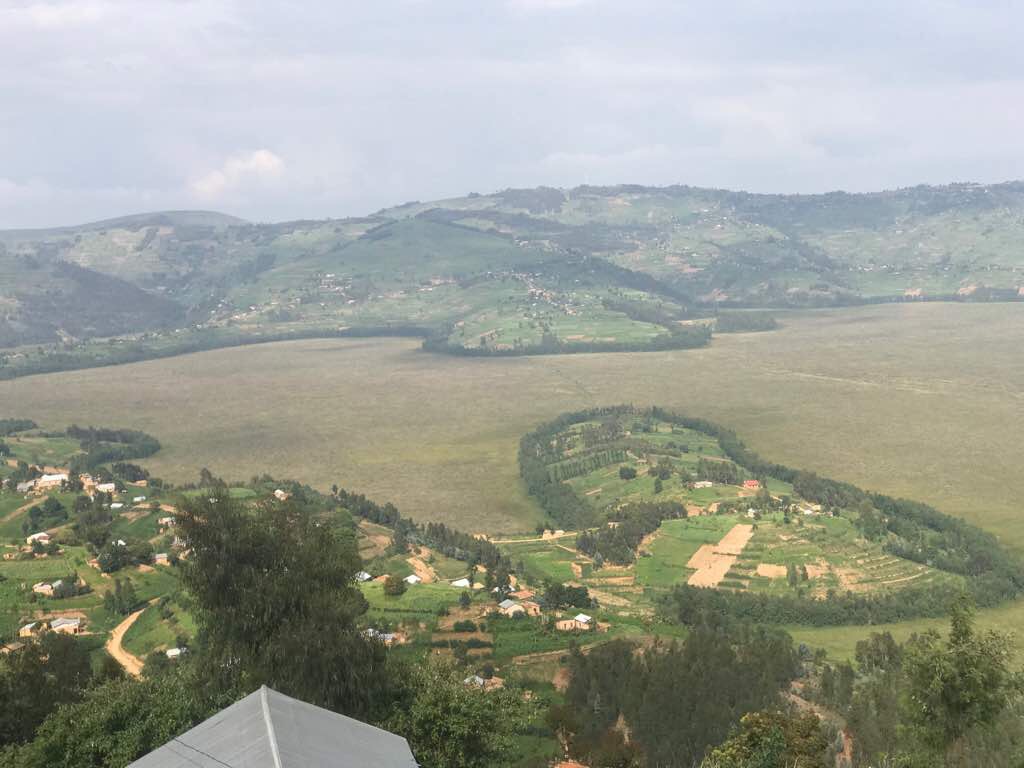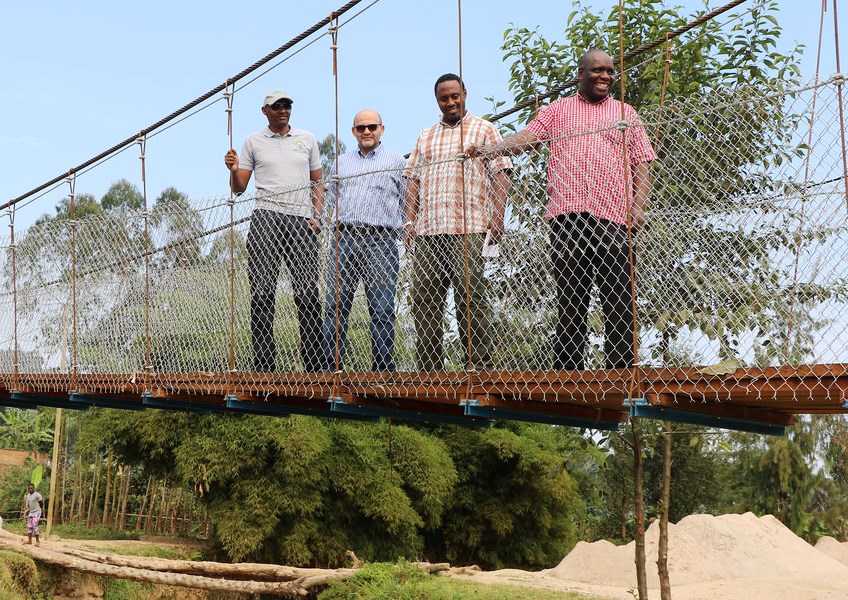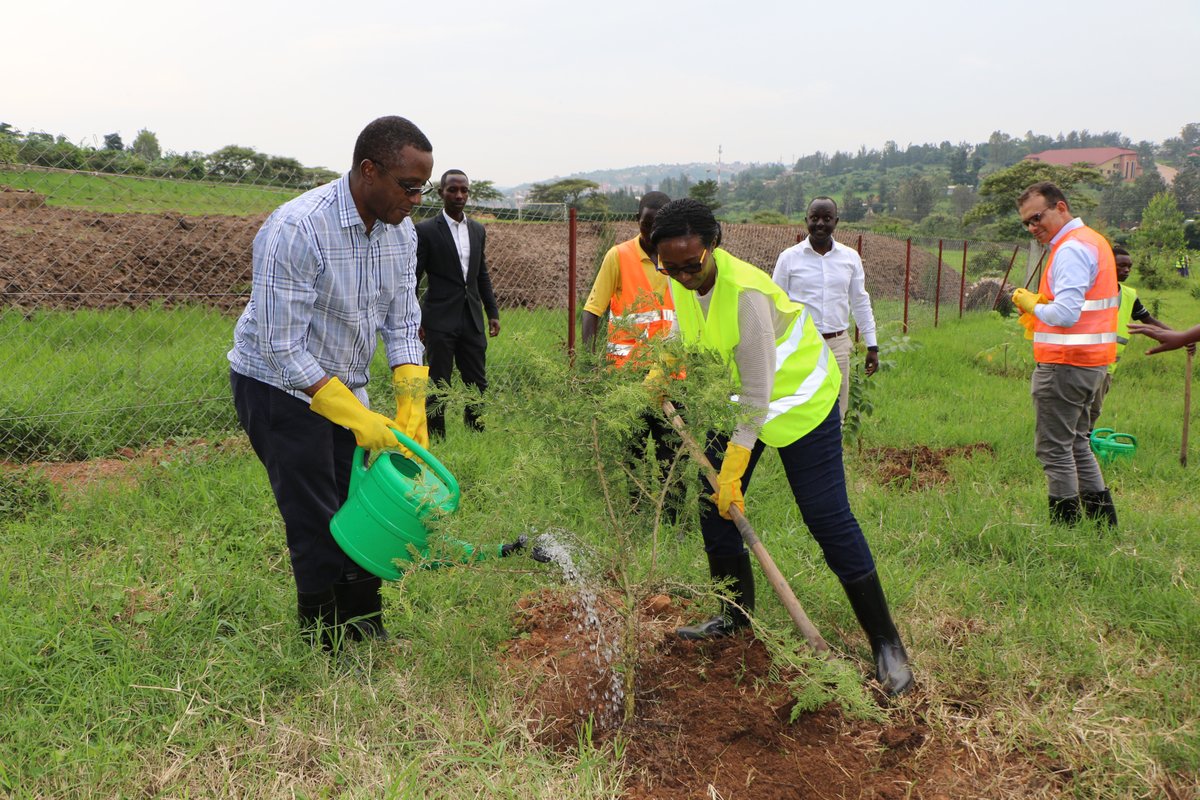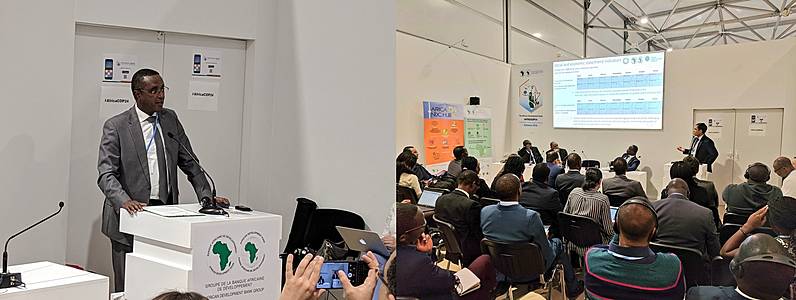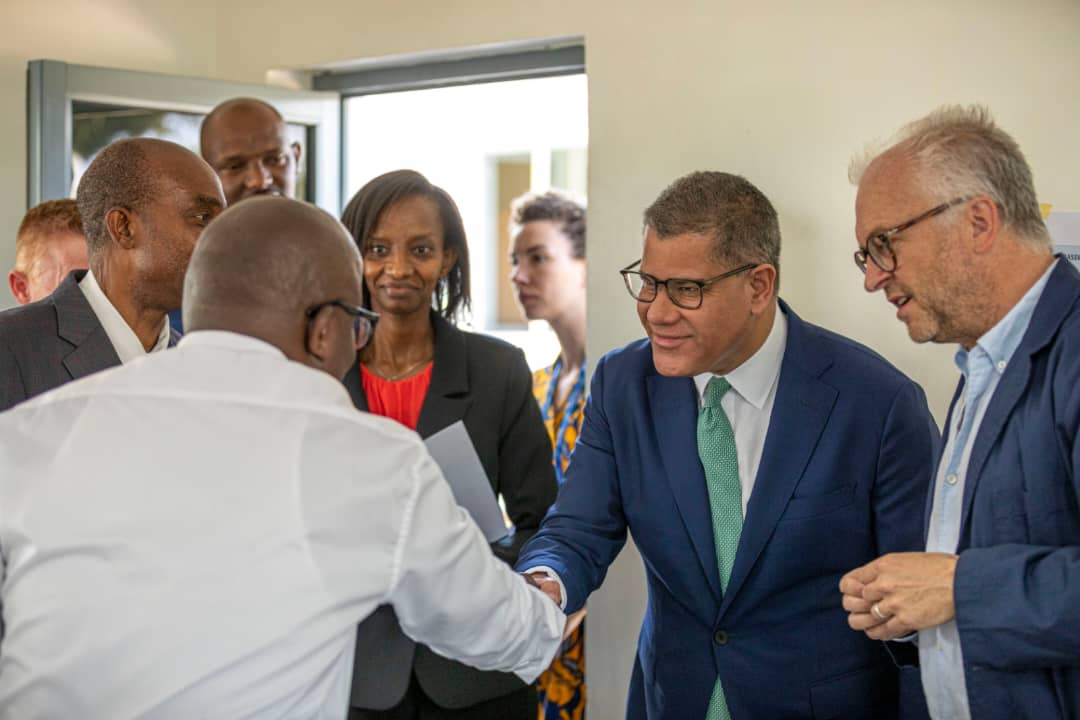
VIP visit for Africa’s clean cold centre shows how we can keep alive the goal of 1.5 Degree Celsius
COP President, the Rt. Hon. Alok Sharma MP, visited the Africa Centre of Excellence for Sustainable Cooling and Cold-chain (ACES) during his attendance at the Commonwealth Heads of Government Meeting (CHOGM) in Rwanda.
Currently 7% of the world’s emissions come from cooling - from food and vaccine cold-chains to air conditioning to high-tech innovation - and demand for cooling will only grow as global temperatures increase.
ACES is a first-of-kind Centre dedicated to generating ideas, technology and capacity building to support sustainable cooling that doesn't cause a spike in energy demand or exacerbate climate change further.
The COP President said, “ACES is a demonstration of how we can work together, to help tackle rising emissions and keep alive the goal of limiting average global temperature rises to 1.5°C.
“Cooling and refrigeration are the fastest-growing source of greenhouse gas emissions in the world, especially in developing countries.But this challenge gives us the opportunity to develop innovative, energy efficient technologies of the future.
“Spearheaded by UK experts and £16 million of DEFRA funding, ACES is dedicated to developing innovative cooling technologies and providing training to apply those technologies.”
Director General of Environment and Climate Change, Beatrice Cyiza who represented Hon. Minister of Environment Dr Jeanne D’Arc Mujamariya during the visit andsaid: “Making cold-chains part of the critical infrastructure is key to tackling post-harvest food losses; accelerating economic growth and meeting our vision 2050 as well as international commitments (i.e: Kigali Amendment to Montreal Protocol and the Paris Climate Agreement). The Centre of excellence offers a compelling opportunity for the first time to bring together all key stakeholders across the spectrum: from the largest multinational companies and leading investors to SMEs and local start-ups, from accomplished academics to budding students, from major supermarkets and agribusinesses to small-shareholder farmers and cooperatives, and political leaders from the international stage to the village-level, and beyond”.
Through a “hub and spoke” model, the Centre is being developed by the Governments of Rwanda and the United Kingdom (UK), University of Rwanda, United Nations Environment Programme and the UK's Centre for Sustainable Cooling leading a consortium of UK universities.
Alongside the UK commitment, the Government of Rwanda is providing the five-hectare campus and cash for renovating existing buildings, backed by industry support to develop new bespoke facilities on-site.
ACES is the merger of key social and environmental targets. As project co-leader and ACES co-Director Professor Toby Peters from the University of Birmingham explains: “By 2050, global food demand is set to grow by between 59% and 98%. In sub-Saharan Africa, almost 50% of fruits and vegetables are lost mainly due to improper cold chain management.
“Given the economic, environmental and social impact, food saved and the food system is as important as food produced. The challenge is how to create local and global temperature controlled ‘field to fork’ from hundreds of millions of subsistence and small-scale farmers whose livelihoods are often dependent on only 1-2 hectares or less, whilst using renewable energy and climate friendly technologies.”
A key focus of the Centre is on clean cold-chains. Globally, 536 million tonnes (12% of total food production) are lost due to lack of cold-chain, enough to feed around 1 billion people. In Rwanda, as an example, food loss equates to 21% of its total land use, 16% of GHG emissions, and 12% loss to its annual Gross Domestic Product. Similarly, 25% of vaccines are wasted globally due to failures within cold-chains; more than 1.5 million people globally die from vaccine-preventable diseases each year.
The campus will include a state-of-the-art refrigeration training centre; a technology demo hall and innovation centre and quality control labs. UK funding is also supporting the development of outreach SPOKEs across Africa, the first of which is being developed in Kenya.
During his visit, the COP President joined workshops with:
- Local farmer co-operatives acting as test-beds with ACES experts and industry partners to develop new, fit-for-purpose, self-sustaining, multi-service cold-chains that can be applied and operated locally; and
- UK clinical research and Covid vaccine trial teams from University Hospital Birmingham who are using ACES to work with Rwanda’s counterparts to build on the successes of their COVID-19 vaccine programmes to jointly develop better and sustainable vaccine protection to a variety of infectious pathogens. This includes investment in people and preparedness for further breakthroughs in vaccine technology that will require a robust cold-chain in order to protect everyone who needs them.
ACES Founder Industry Partner (FIP) Danfoss was also present for the visit. FIPs are making multi-year commitments, with Danfoss already providing sustainable refrigeration technology for a novel demonstrator “community cooling hub”, a training cold store and extensive training material for refrigeration installers. The company also used the event to open its first East Africa regional office on the campus.
Ziad Al Bawaliz, regional President for Turkey, Middle East, and Africa at Danfoss: comments: “At Danfoss, we are committed to supporting the expansion of a sustainable cold chain, to decarbonise from farm to fork with energy-efficient, climate-friendly technologies and training support for installers.”
Topics
More posts
Rwanda Hosts the GEF Eastern Africa Expanded Constituency Workshop
Kigali, 12 February, 2019 – Participants from 14 East African countries are meeting in Rwanda for a four day Expanded Constituency Workshop, organized…
Global Environment Facility Expanded Constituency Workshop for Eastern Africa-Opening Remarks by Minister Biruta
Marriott Hotel, Kigali | 12 February 2019
● Francoise Clottes, Director of Strategy
● and Operations, Global Environment Facility
● Coletha Ruhamya,…
Rwanda celebrates World Wetlands Day to raise public awareness to relocate illegal activities from wetlands
Kigali, 31 January, 2019 - Rwanda celebrated World Wetlands Day on 31 January, 2019 in an event aimed to raise awareness to to relocate illegal…
Rwandans Urged to Wisely Use Wetlands as the Country Celebrates the World Wetlands Day 2019
Every year, Rwanda joins the world in commemoration of the World Wetlands Day (WWD), celebrated on 2nd February with the aim of raising public…
Restoring Gishwati-Mukura Landscape: Improving livelihoods while Promoting Tourism
The Rwanda Environment Management Authority (REMA) through Landscape Approach to Forest Restoration and Conservation (LAFREC) project is…
Activities for Transforming Nyandungu Wetland into an Eco-Tourism Park on Track
The Minister of environment Dr. Vincent Biruta has commended the good progress over the implementation of the project of turning Nyandungu wetland…
Remarks by Minister Biruta at AfDB-GGGI Study on Africa Green Growth Readiness Assessment COP24
10 December 2018
·Frank Rijsberman, Global Green Growth Institute Director General
·Amadou Hott, Vice-President, Power, Energy, Climate and Green…
Rwanda Fosters Green Investment and Sustainable Development in the First Event of the Africa Green Green Growth
A high-level policy dialogue was organised to share the progress made in the implementation of Rwanda’s Green Growth and Climate Resilience Strategy…
Africa Green Growth Forum Participants Encourage Young Students to Be Environment Champions
On the first day of the Africa Green Growth Forum, participants took part in planting trees with students from three primary schools. Themed, “Green…
